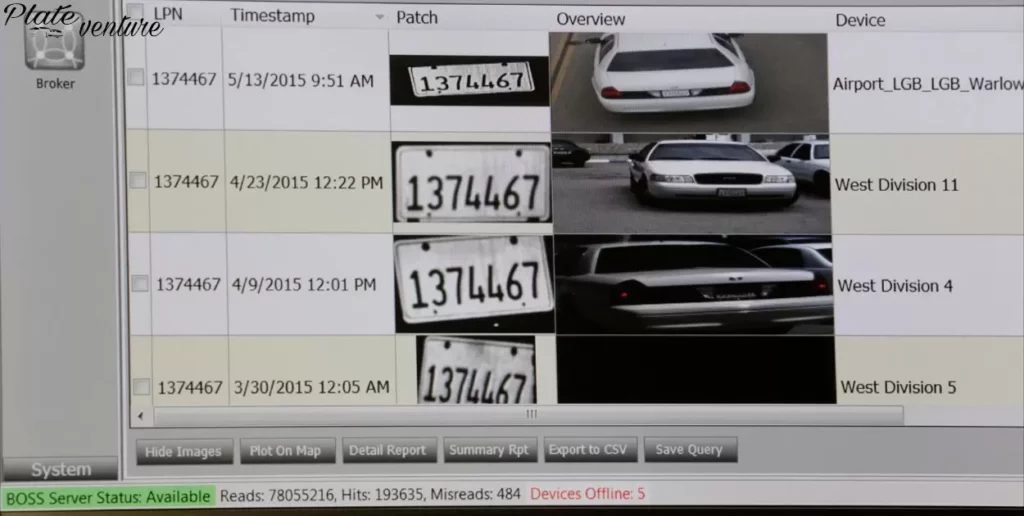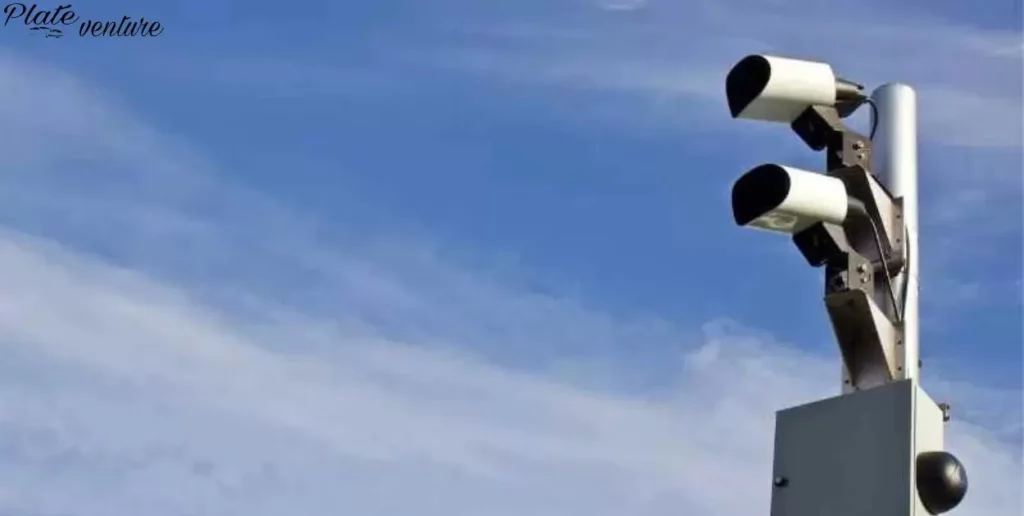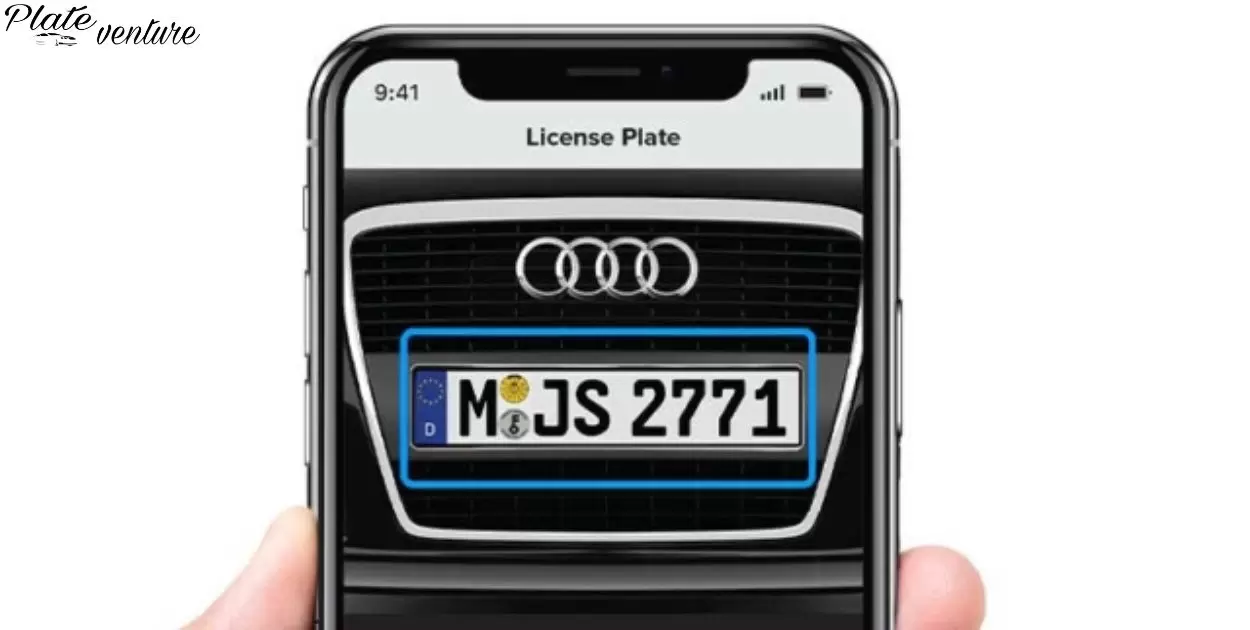License plate scanners being fooled refers to the manipulation or evasion of automated license plate recognition systems. This can involve tactics such as using altered license plates, reflective materials, or other methods to deceive the scanners and avoid accurate identification of the vehicle.
Curious about the secrets behind evading surveillance? Wondering, ‘Can license plate scanners be fooled?’ Uncover the intriguing world of privacy tactics as we explore methods to outsmart automated systems. Join us in this eye-opening journey and discover if there’s more to license plate scanners than meets the eye.
License plate scanners cannot be easily fooled, as they use advanced technology to capture and recognize plates. Attempts to trick them with fake plates or reflective materials are generally unsuccessful. Researchers continue to explore privacy concerns and potential vulnerabilities in these systems.
How To Make Your License Plate Unscannable
To make your license plate unscannable, use a license plate cover. These covers come in various styles and materials. They shield your plate from automated scanners, ensuring your privacy on the road.
Consider using anti-camera sprays or films. These products reflect light, preventing license plate recognition. Applying them is simple and provides an extra layer of protection against unwanted surveillance. Keep in mind local regulations regarding license plate modifications to stay within legal boundaries.
Understanding License Plate Scanners
License plate scanners are devices that automatically capture images of license plates. These scanners use optical character recognition technology to convert the plate numbers into text. Law enforcement and parking authorities commonly use these devices to quickly identify and track vehicles.
These scanners aid in various tasks, such as locating stolen vehicles, managing parking violations, and monitoring traffic. While they enhance efficiency in law enforcement, concerns about privacy and data security have also been raised, prompting ongoing discussions about the responsible use of license plate scanner technology.
How License Plate Scanners Work
License plate scanners use cameras to capture images of license plates on vehicles. These cameras are often mounted on police cars or stationary structures like toll booths. Once an image is taken, the system processes it to extract the alphanumeric characters on the license plate.
The extracted license plate information is then compared against a database of wanted or flagged vehicles. If a match is found, the system alerts law enforcement, helping them identify and apprehend the vehicle in question. This technology aids in various law enforcement activities, such as locating stolen cars, identifying vehicles associated with criminal activities, and enhancing overall public safety.
Instances of License Plate Scanner Use
License plate scanners are widely used by law enforcement agencies to monitor and track vehicles. These devices automatically capture and record license plate numbers, aiding in tasks like locating stolen cars and identifying vehicles linked to criminal activities. The technology helps enhance public safety and streamline law enforcement efforts.
In addition to law enforcement, license plate scanners are also employed in private sectors, such as parking management and toll collection. Automated scanning speeds up processes, reduces manual labor, and improves overall efficiency. While these scanners offer various benefits, concerns about privacy and data security have been raised, prompting ongoing discussions about the responsible and ethical use of this technology.
Privacy Concerns Surrounding License Plate Scanners
License plate scanners raise privacy concerns. These devices automatically capture and store license plate information. Critics argue that this constant surveillance poses a threat to individuals’ privacy rights.
The scanners track vehicle movements without explicit consent. Concerns focus on the potential misuse of data and the lack of clear regulations. Balancing security needs with privacy protection remains a challenge in the ongoing debate over license plate scanner use.
Police License Plate Scanner Blocker
Dimensions Of A Number Plate are crucial aspects to consider when discussing a Police License Plate Scanner Blocker. This device is ingeniously crafted to ensure that your Dimensions Of A Number Plate remain discreet and undetectable by automatic license plate recognition systems. By understanding the specific Dimensions Of A Number Plate for your region or vehicle type, you can ensure that the blocker effectively conceals this vital information, thereby preserving your privacy on the road.
The Police License Plate Scanner Blocker’s capability to mask the Dimensions Of A Number Plate is a testament to its sophisticated design and functionality. By obscuring these dimensions, the device prevents unauthorized access to your vehicle data, offering you peace of mind during your travels. Its compatibility with various Dimensions Of A Number Plate ensures a broad range of protection, making it a versatile solution for diverse vehicles.
Incorporating the correct Dimensions Of A Number Plate into the design and operation of the Police License Plate Scanner Blocker underscores its effectiveness and reliability. As technology continues to evolve, understanding and adapting to the specific Dimensions Of A Number Plate becomes paramount in maintaining confidentiality and security.
Challenges in License Plate Scanner Technology
License plate scanner technology faces several challenges. First, accuracy remains a concern as environmental conditions, such as poor lighting or bad weather, can affect the system’s performance. The rapid evolution of license plate designs and materials poses a hurdle for these scanners, requiring constant updates to maintain effectiveness.
Another challenge is the issue of privacy. Critics argue that widespread use of license plate scanners raises concerns about the surveillance of individuals, prompting the need for clear regulations to balance security needs with privacy rights. Finding solutions to these challenges is crucial for the continued development and ethical deployment of license plate scanner technology.
Can License Plate Scanners Be Manipulated?
License plate scanners are devices that automatically capture and read license plate information. Some wonder if these scanners can be manipulated. The answer is yes, as various vulnerabilities exist in their systems.
Individuals with technical know-how can tamper with the scanners, potentially evading detection or altering data. This raises concerns about the reliability of these systems and the need for constant updates to stay ahead of potential manipulation.
Methods of Fooling License Plate Scanners
here’s a simple table outlining methods of fooling license plate scanners:
| Method | Description |
| Obfuscation Techniques | Altering characters or using reflective materials to make license plates harder to read. |
| Frame Modifications | Adding frames or accessories to disrupt the visibility of the license plate. |
| Camera Interference | Using bright lights or lasers to interfere with the camera’s ability to capture clear images. |
| Plate Swapping | Temporarily replacing license plates with different ones to avoid identification. |
| Dirtying or Obscuring Plates | Applying substances like mud, grease, or sprays to make the license plate unreadable. |
| Jamming Signals | Employing electronic devices to disrupt the communication between the scanner and the system. |
| Hacking Techniques | Exploiting vulnerabilities in the scanner’s software or system to manipulate data. |
Engaging in activities to fool license plate scanners may be illegal and is strongly discouraged. It’s important to respect and adhere to the law.
Legal Implications of Attempting to Fool License Plate Scanners

Attempting to fool license plate scanners raises serious legal concerns. This action may result in criminal charges, as it interferes with law enforcement’s ability to monitor and enforce traffic regulations. Courts may view such attempts as obstructing justice and tampering with official systems, leading to severe penalties such as fines or even imprisonment.
Individuals engaging in these activities may face civil liabilities. If their actions result in accidents or other legal consequences, they could be held responsible for any damages or injuries that occur. In essence, attempting to deceive license plate scanners not only violates the law but also exposes individuals to significant legal risks and potential consequences.
License Plate Scanners Suspended License
License plate scanners are devices used by law enforcement to quickly identify and track vehicles. These scanners automatically capture and analyze license plate numbers, aiding in the detection of stolen vehicles or vehicles associated with criminal activity.
License plate scanners have been linked to the suspension of licenses. When individuals are found to have committed traffic violations or other offenses, their license plates may be flagged in the system. This can result in the suspension of their driving privileges, highlighting the role of technology in enforcing traffic regulations and maintaining public safety on the roads.
Government and Law Enforcement Perspectives
Government and law enforcement agencies view license plates as vital tools for ensuring public safety. License plates help identify vehicles, enabling authorities to monitor traffic, investigate crimes, and enforce regulations. From a government standpoint, license plate data plays a crucial role in maintaining order on the roads and safeguarding communities.
Law enforcement perspectives on license plates focus on their role in tracking and apprehending criminals. By utilizing license plate information, police can swiftly locate vehicles involved in illegal activities, aiding in the swift resolution of cases. The collaboration between government and law enforcement underscores the significance of license plates as indispensable tools for upholding law and order in society.
Alternatives to License Plate Scanners

License plate scanners are widely used for surveillance, but alternatives exist. One option is Automated Vehicle Identification, which uses radio frequency identification (RFID) technology. With AVI, vehicles are equipped with RFID tags, allowing for efficient and accurate tracking without relying on visual scanning.
Another alternative is mobile phone-based identification. Utilizing smartphone technology, this method involves linking license plate data to mobile devices, providing a versatile and cost-effective solution. By exploring these alternatives, we can address concerns about privacy and explore new avenues for effective vehicle identification.
Future Developments in License Plate Scanner Technology
- Enhanced Security: Future developments in license plate scanner technology are poised to significantly enhance security measures. Advanced algorithms and machine learning capabilities will enable more accurate identification of license plates, aiding law enforcement in quickly identifying and responding to potential security threats.
- Improved Traffic Management: The evolution of license plate scanner technology promises better traffic management through real-time monitoring and data analysis. Smart systems will be able to identify traffic patterns, optimize traffic flow, and reduce congestion, leading to more efficient and safer roadways.
- Crime Prevention: The integration of cutting-edge features in license plate scanners will play a crucial role in crime prevention. Law enforcement agencies can utilize predictive analytics and historical data to identify and track vehicles associated with criminal activities, deterring potential offenders and enhancing public safety.
- Seamless Integration with IoT: Future license plate scanners are expected to seamlessly integrate with the Internet of Things (IoT), creating a connected ecosystem for smart cities. This integration will enable devices to communicate and share data, fostering a more comprehensive and collaborative approach to urban planning and security.
- Privacy and Ethical Considerations: As technology advances, there is a growing emphasis on addressing privacy concerns. Future developments in license plate scanner technology will likely include robust privacy features and ethical considerations to ensure responsible and lawful use. Striking a balance between public safety and individual privacy will be a key benefit of these advancements.
Case Studies: Instances of Successful or Attempted Deception
In these case studies, we examine real-life situations involving successful or attempted deception related to license plates. People have tried various tactics to deceive authorities, from using fake plates to altering existing ones. These instances highlight the ongoing challenges faced by law enforcement in maintaining the integrity of license plate systems.
Each case sheds light on the importance of vigilance and advanced technology in detecting and preventing license plate deception. From creative attempts to replicate plates to more sophisticated strategies, these studies provide valuable insights into the evolving methods employed by individuals seeking to deceive through license plate manipulation.
License Plate Scrambler
The License Plate Scrambler is a device designed to protect your privacy on the road. It actively jumbles and changes your license plate digits, making it challenging for surveillance systems to track your vehicle. This gadget ensures that your movements remain confidential, offering a simple yet effective solution for those concerned about their personal information while driving.
By installing the License Plate Scrambler, drivers gain a sense of control over their privacy. This innovative technology disrupts automatic license plate recognition, providing a practical tool for individuals seeking an extra layer of security in an increasingly monitored world.
License Plate Reader Blocker
A License Plate Reader Blocker is a device designed to protect your privacy by preventing automatic license plate recognition systems from capturing your vehicle’s plate information. It works by using reflective materials or infrared LEDs to create a glare or blur in photographs, making it difficult for surveillance cameras to read and store your license plate data.
These blockers are legal in many places and serve as a proactive measure for individuals concerned about their personal information being collected without consent. By employing a License Plate Reader Blocker, you can take control of your privacy on the road, ensuring that your comings and goings remain more discreet and less susceptible to automated tracking.
Frequently Asked Question
What are the steps in license plate detection?
License plate detection involves capturing images, preprocessing them to enhance visibility, applying image segmentation to isolate the plate, and finally, utilizing optical character recognition (OCR) to extract and interpret the alphanumeric characters on the license plate.
What are the scanners on top of police cars?
The scanners on top of police cars are typically Automatic License Plate Readers (ALPRs). They capture and process license plate information, helping law enforcement identify vehicles of interest, check for stolen vehicles, or locate individuals with outstanding warrants.
What do police see when they run your plates UK?
When police run your plates in the UK, they access the vehicle’s registration details and ownership information. This helps them verify if the vehicle is taxed, insured, and not associated with any legal issues.
What are the black cameras on top of police cars?
The black cameras on top of police cars are typically license plate recognition (LPR) cameras. They automatically capture and analyze license plate information to aid law enforcement in identifying vehicles and enforcing traffic laws.
Conclusion
The question of whether license plate scanners can be fooled is a topic of ongoing discussion. While some individuals may explore the use of license plate reader blockers as a means of enhancing privacy on the road, it’s important to note that the effectiveness of such devices may vary.
The adaptability of license plate recognition technology continues to evolve, prompting both privacy advocates and law enforcement to navigate the delicate balance between security concerns and personal freedoms. As technology advances, the effectiveness of fooling license plate scanners remains a dynamic and evolving aspect of the ongoing conversation surrounding privacy in the digital age.








